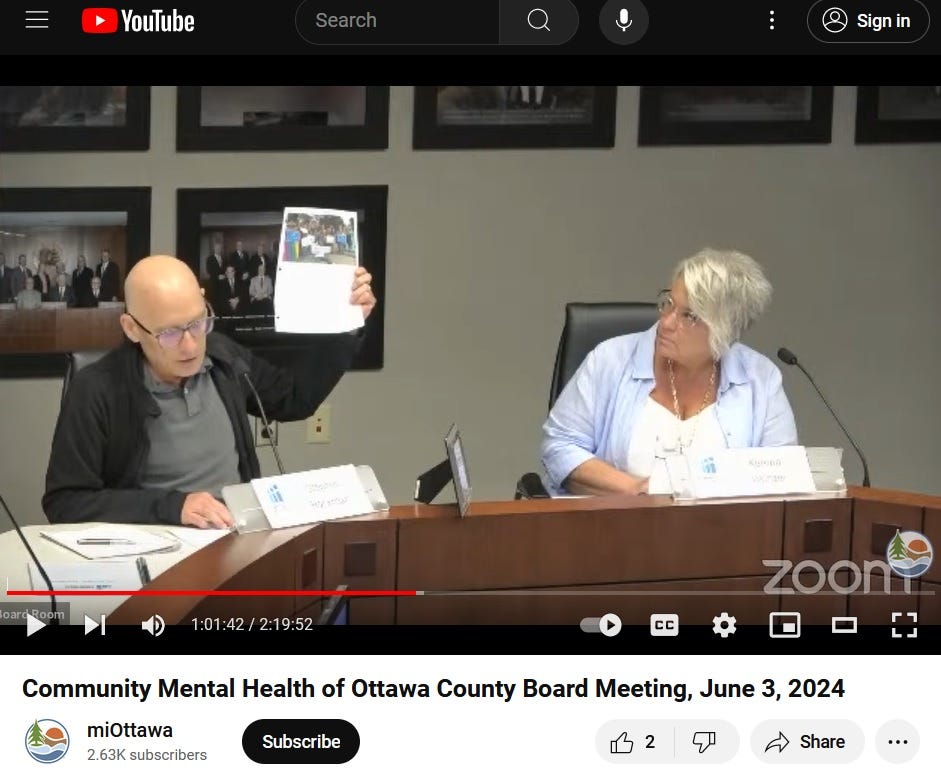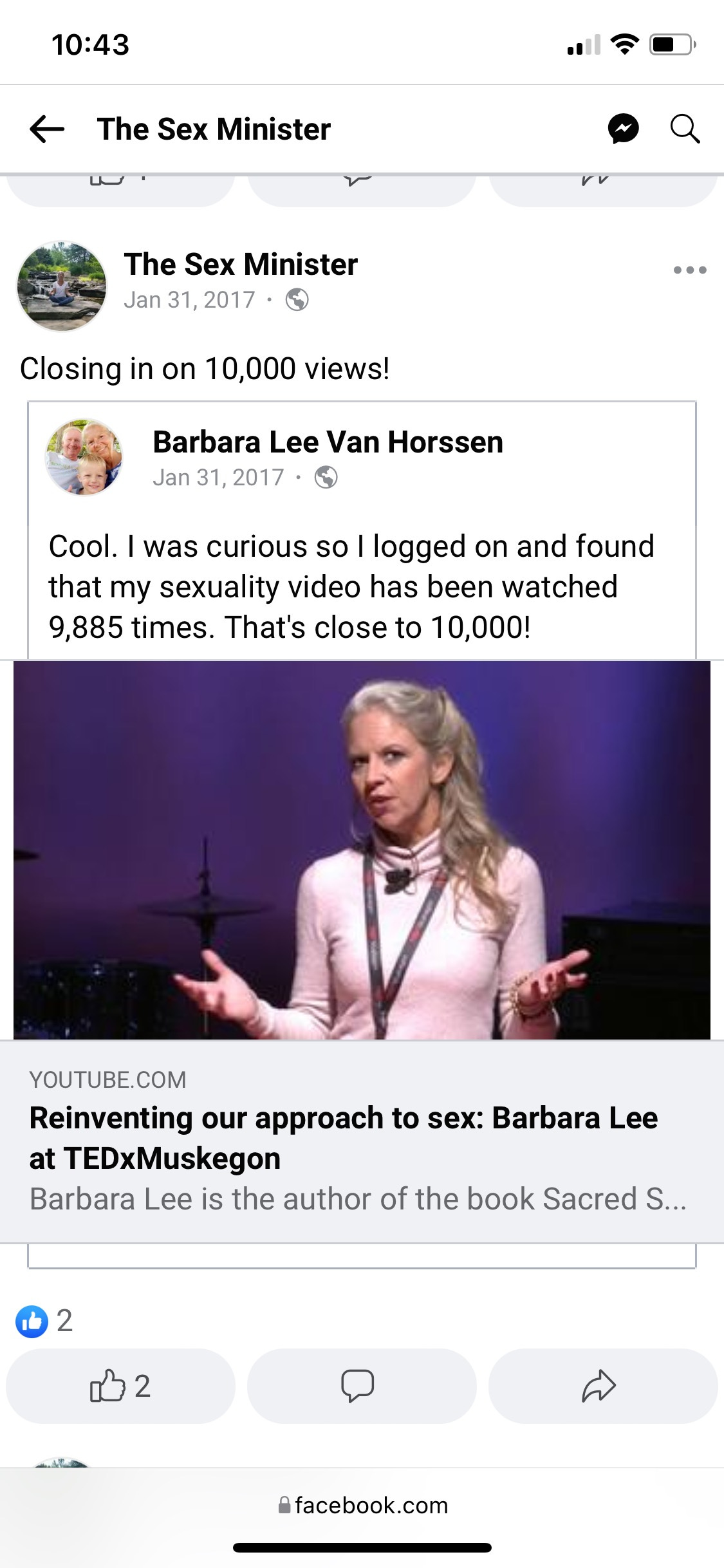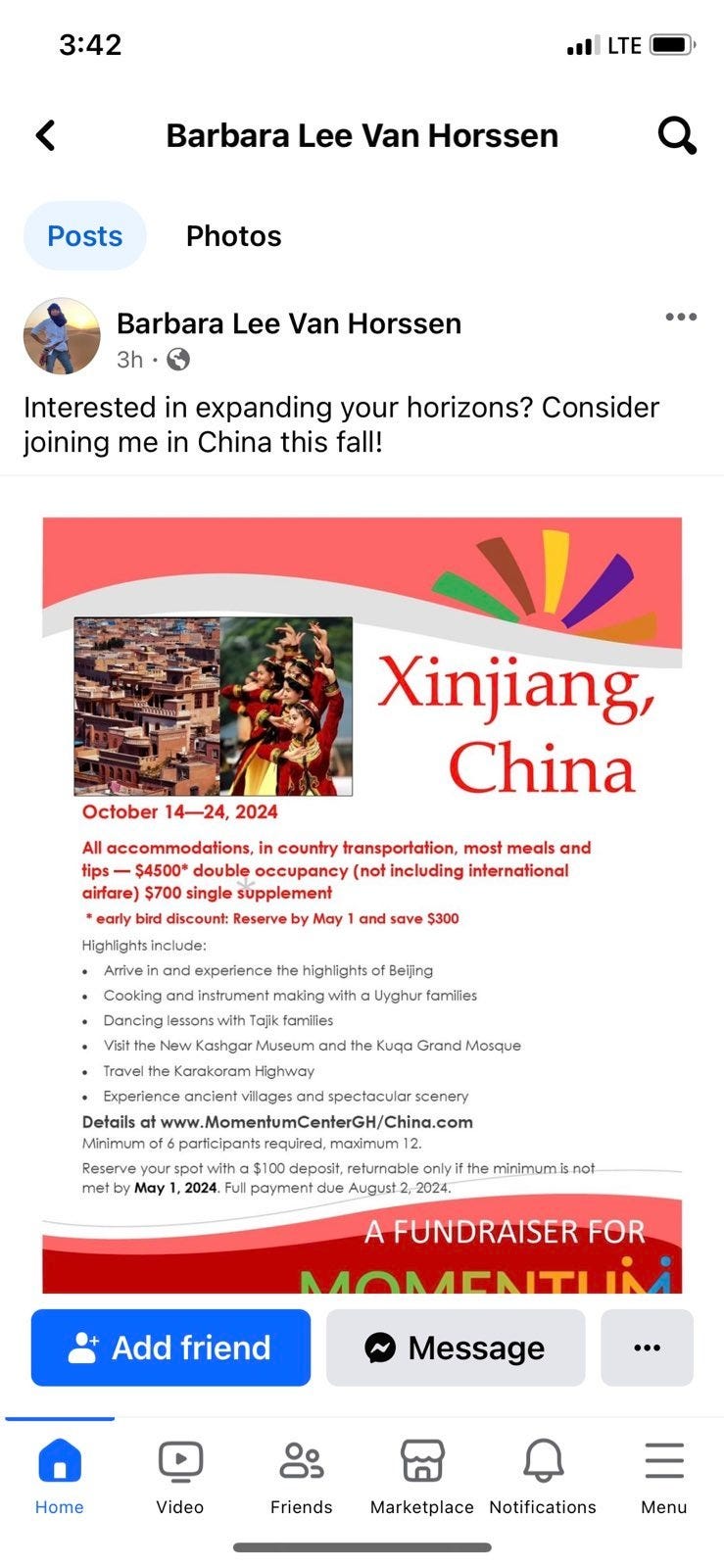The Community Mental Health Ottawa County (CMHOC) board should be quite busy over the next few months. They will be busy searching for a new executive director, overseeing recipient rights, reviewing and approving contracts and grants, and determining how to spend mental health millage dollars. Additionally, while continuing to fund existing social recreation programs for three more months, including the controversial Momentum Center program, CMH plans to send out requests for proposals (RFPs) to entice new entities to compete for social recreation program funding in the marketplace.
CMH Executive Director Lynne Doyle recently announced her retirement due to a medical issue, so the board is in the process of selecting a replacement. The board currently has two candidates and hopes to have a replacement by July 2024. Former Executive Director Dr. Michael Brashears is currently serving as Interim Executive Director. During the June 3, 2024 meeting, Brashears gave a detailed analysis of the current state of CMH. Perhaps the biggest upcoming challenge will be finding solutions that provide housing and community living support to consumers with state Medicaid funding limitations and a rising need for services largely due to skyrocketing rates of autism diagnoses.
Although providing social recreation services is a secondary concern, it appears to have taken up a significant amount of the board’s time. Issues raised by the community regarding the Momentum Center led the board to form a committee to analyze the four social recreation programs funded with Mental Health Millage money. While the board seemed to be happy with the social recreation programs offered by Heritage Homes, IKUS REC Connect, and Pioneer Resources, not all board members were happy with the Momentum Center program.
Since the December 18, 2023 meeting, Board Member Stephen Rockman has attempted to bring forth his concerns about the Momentum Center. On June 3, 2024, he was finally able to speak without interruption. (1:00:00)
https://www.youtube.com/live/pazafhq5HV4
In his presentation, Rockman described the social justice activism of the Momentum Center, and Barbara Lee VanHorssen’s background; the director who has taken the title Experi-mentor. Rockman stated, “An organization is a reflection of its leadership.” Holding up a photo of VanHorssen pictured with a group of drag queens, Rockman continued, “She is the self-proclaimed Experi-mentor. She is also known as the Sex Minister.”
Rockman also questioned the interesting timing of events and associated government entities in relation to the Momentum Center. “The relationship between the Momentum Center and the CMH does raise questions. SAMSHA [substance abuse and mental health services administration] funded the CCBHC [certified community behavioral health clinic]. SAMSHA promotes anti-racism. Soon after the CMH became a CCBHC, it entered into a service agreement with the Momentum Center, and then CMH became a member of the Momentum Center Anti-Racism Task Force.”
The Momentum Center appears to be a political activist organization that happens to offer a social recreation program. Their Anti-Racism Task Force, which is rooted in neo-Marxist ideals, has held town hall meetings for the community and partnered with Grand Haven Area Public Schools. The Momentum Center hosts an LGBTQ+ affinity group, and has held Get Out the Vote and vaccination events. They sponsor cultural immersion fundraising trips to exotic locations around the world and a Civil Rights Road Trip. They do not employ counselors, rather they host mental health town hall meetings that focus on the stigma associated with mental health, in which individuals are divided into oppressor/oppressed categories and seen either as those that support the mentally ill or those that stigmatize them.
During the CMH discussion, board member Chris Kleinjans clarified that, although the Momentum Center may be involved in non-contractual activities, they are meeting their contractual agreement with CMH. Kleinjans stated, “Everybody was doing the programming we were paying them to do, regardless of things that fell outside of that programming that they also did.” He later added, ”They were doing what we had contracted with them to do within the framework.”
Social recreation events at the other centers typically focus on one area of need, but at the Momentum Center, activities are offered to those with mental illness (MI), substance use disorder (SUD), and intellectual and developmental disabilities (IDD). Several CMH board members see this mixing of populations problematic. On at least one occasion, it has led to police involvement due to an overdose situation. Board member Donna Bunce, who runs the Compassionate Heart social recreation program, said several parents have told her, “I don’t feel like it’s [Momentum Center] a safe option.”
Despite the Momentum Center being controversial, on June 3, 2024, Community Mental Health Ottawa County (CMHOC) voted to continue funding the Momentum Center through September 30, 2024. Although several board members appear uncomfortable with funding the Momentum Center, the lack of an alternative program seemed the driving factor in the vote to continue funding.
Board member Thomas Bird explained this concern. (1:11:00) “We have a quandary here. We have an issue of quantity of service versus quality of service.” He then explained that although he was personally opposed to the activism displayed by the Momentum Center, there is currently no alternative program. ”As an agency, we have an issue here where we need to take some responsibility for either providing an alternative for our consumers, or providing restrictions to our funding so that we have a clear separation of the services that we are willing and proud to support, versus those that we have questions about.” He then made an analogy. “If I have a heart problem and I go to [a] hospital, do I refuse services there because they also provide abortions that I’m personally opposed to?”
Thinking about future solutions, Board Chair Gretchen Cosby brought up the idea of personal choice and having the money follow the person rather than be provided to an organization to fund a program. Cosby asked, “Is there a way that we can pay per person?” Rockman echoed that sentiment, “It should go through the person-centered process. If this is what guardians and parents want for their children, that’s their choice. I just don’t think we as the taxpayers should be funding this; the political activist organization.” While this seems a solution with good potential, it will require thoughtful implementation as not all members of the Momentum Center receive CMH services.
Vice Chair Sylvia Rhodea brought up several important points. “It does appear that Momentum Center has a fair amount of activist activities going on. I do believe that if an organization wants to be an activist organization, then there is a place for fundraising in the private sector in order to do those activities. That’s not necessarily a function of CMH; to be funding activist activities. I also don’t think it’s appropriate for CMH to be funding things like trips. I think there would be pushback that CMH perhaps is not funding trips, but there is definitely an appearance that there may be some inappropriate funding things going on there when CMH is providing a significant amount of millage dollars. Especially when we have families that are so hurting and staffing needs that are so critical in other areas that, it just doesn’t smell right.”
Rhodea continued, “There has been a sense of entitlement to community funds when things have been presented from Momentum Center. Organizations, especially activist organizations, are not entitled to public fund money, especially when you are serving people with critical needs. It’s simply not appropriate.”
Rhodea then asked, “Why is there a difference in funding levels between these different organizations providing social rec?”
Heritage Home Social Rec Program $216,000
IKUS R.E.C. Connect $138,500
Momentum Center $290,800
Pioneer Resources LARC $81,365
Interim Director Dr. Michael Brashears explained, “It’s based on the original proposals of what they said they needed to meet the amount of people that they could serve. There wasn’t a corresponding logic model that says we will only fund up to this, or a price per person. Our new RFP will have language built in to look at that. What is the scope of services. What is a reasonable cost. What is the anticipated utilization rate. The providers simply responded with this is what we need to do what we say we are going to do. [] I want to make sure that the consumers and residents of this county have a place to go until we get our act together.”
CMH has will be busy in the upcoming months as they select a new executive, determine the best ways to spend Mental Health Millage money, determine which social recreation programs to fund, and continue to meet an increasing demand for services. There are many rules to navigate that govern how different sources of funding can be spent and which services must be covered. For example, Mental Health Millage money cannot be used to fund services covered by Medicaid, so although the greatest need may be community living support workers, it may not be possible to use millage money for this purpose.
The challenges are numerous and the community will be shaped by their decisions, but one thing is clear to me. I do not believe that organizations that mix political activism with community services should receive taxpayer funding, especially when this impacts some of our most vulnerable citizens. I hope the board works hard to find an alternative.






